Revolutionizing Wisconsin Agriculture: How FarmBeats and AI Are Transforming Precision Farming Education
“FarmBeats for Students program, a Microsoft-National FFA collaboration, is active in Wisconsin’s Chippewa Falls High School.”
In the heart of America’s Dairyland, a quiet revolution is taking place. Wisconsin, long known for its rich agricultural heritage, is now at the forefront of a technological transformation that’s reshaping the future of farming. We’re witnessing the dawn of a new era in agriculture education, where precision agriculture technology is not just a concept but a hands-on reality for students. At the center of this innovation is the FarmBeats for Students program, a groundbreaking initiative that’s cultivating the next generation of tech-savvy farmers.
As we delve into this exciting development, it’s crucial to understand how precision agriculture is changing the landscape of farming operations and education in Wisconsin. The integration of cutting-edge technology with traditional agricultural practices is opening up new possibilities for efficiency, sustainability, and productivity. Let’s explore how this fusion of agriculture and technology is preparing students for the future of farming.
The Rise of Precision Agriculture in Wisconsin
Precision agriculture technology has become a game-changer for farmers across Wisconsin. By leveraging advanced tools and data-driven insights, farmers can now make more informed decisions about their crops and land management. This shift towards precision farming is not just improving yields and reducing costs; it’s also creating a demand for a new kind of agricultural education.
One company at the forefront of this agricultural revolution is Farmonaut. While not directly involved in the FarmBeats program, Farmonaut offers complementary technologies that align with the goals of precision agriculture education. Their satellite-based crop monitoring system provides real-time insights into crop health, demonstrating the kind of advanced tools students are learning to use in programs like FarmBeats.
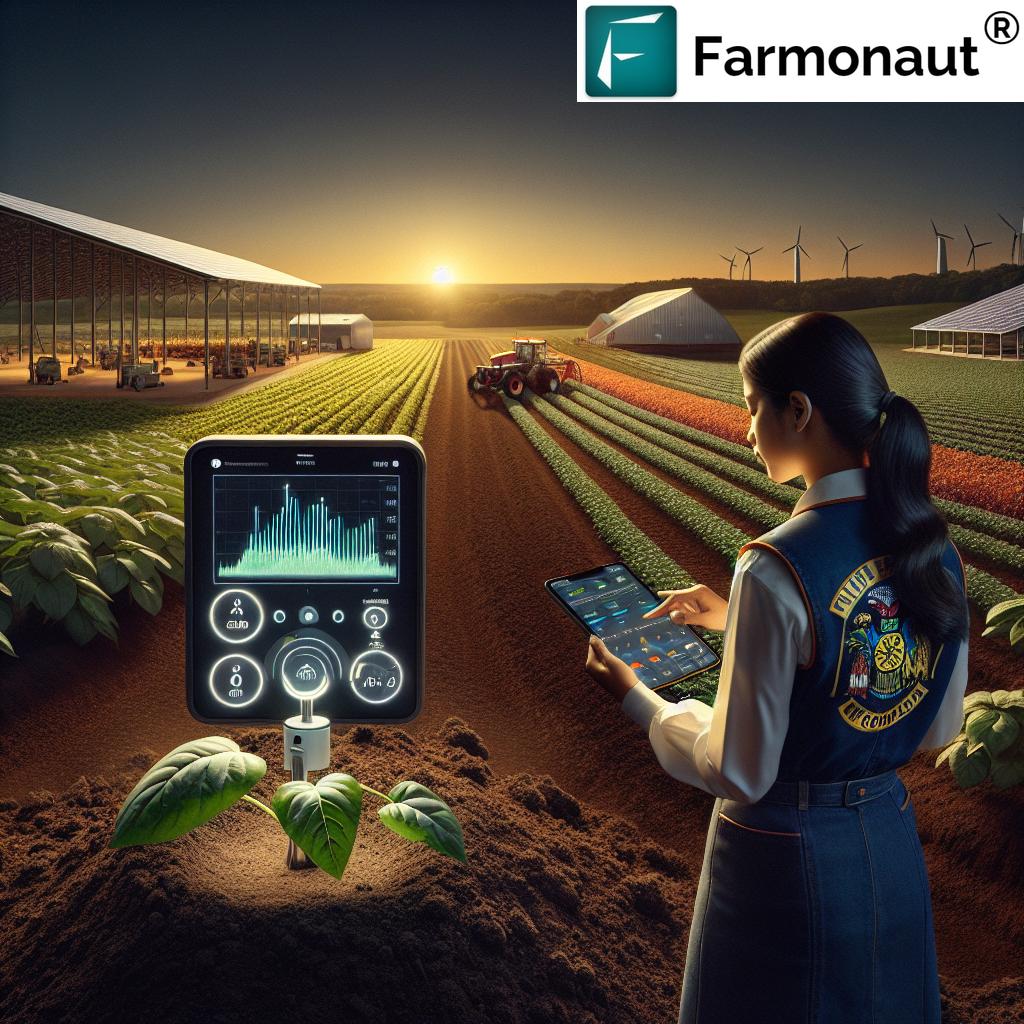
FarmBeats for Students: Bridging the Gap Between Education and Innovation
The FarmBeats for Students program, a collaboration between Microsoft and the National FFA, is at the heart of this educational revolution. This innovative initiative is designed to empower students with the skills they need to thrive in the rapidly evolving world of modern agriculture. By bringing cutting-edge agricultural technology into the classroom, FarmBeats is preparing the next generation of farmers for a tech-driven industry.
At Chippewa Falls High School, students are getting hands-on experience with tools that are transforming the agricultural landscape. From soil health sensors to drones and AI-powered analysis tools, these young minds are learning to harness the power of technology to enhance agricultural efficiency and sustainability.
Hands-On Learning with Cutting-Edge Technology
“Students use AI, soil health sensors, and data analysis to monitor plant growth and manage farm operations efficiently.”
The FarmBeats program is not just about theory; it’s about practical, hands-on learning. Students at Chippewa Falls High School are diving deep into the world of agricultural technology, working with tools that professional farmers are using in the field. Let’s take a closer look at some of the key technologies students are exploring:
- Soil Health Sensors: These advanced devices allow students to monitor crucial soil parameters such as moisture levels, pH, and nutrient content in real-time.
- Drones: Students are learning to use drones for aerial surveying, crop monitoring, and even precision application of fertilizers and pesticides.
- Artificial Intelligence: AI algorithms are being used to analyze data from sensors and drones, providing insights into plant health and growth patterns.
- Data Analysis: Students are gaining valuable skills in interpreting and applying data to make informed decisions about crop management.
This hands-on approach to learning is not only engaging for students but also directly applicable to real-world farming scenarios. It’s preparing them for a future where data-driven decision-making is the norm in agriculture.
Integrating Multiple Disciplines for Comprehensive Learning
One of the most innovative aspects of the FarmBeats program is its interdisciplinary approach. Students are not just learning about agriculture; they’re also gaining skills in:
- Coding: Writing and modifying code to program sensors and analyze data.
- Data Analysis: Interpreting complex datasets to draw meaningful conclusions about crop health and soil conditions.
- Environmental Science: Understanding the ecological impacts of farming practices and how technology can promote sustainability.
This multifaceted approach ensures that students are well-rounded and prepared for the diverse challenges of modern agriculture. It also opens up new career possibilities, showing students that agriculture is about more than just working in the fields.
Real-World Applications: From Classroom to Field
The skills students are learning through FarmBeats have immediate real-world applications. For instance, the ability to monitor soil pH and moisture levels using sensors can help farmers optimize irrigation and fertilization practices. This not only improves crop yields but also conserves resources, making farming more sustainable.
Similarly, the use of drones for weed management is a prime example of how technology is revolutionizing traditional farming practices. Students like Ryan Schutte, who we mentioned earlier, are already seeing the potential of these technologies in their family farms or summer jobs.
For a more comprehensive approach to farm management, tools like Farmonaut’s large-scale farm management system demonstrate how the skills learned in FarmBeats can be applied on a broader scale. This system allows for the monitoring and management of vast agricultural operations, showcasing the scalability of precision agriculture techniques.

The Impact on Agricultural Education
The introduction of programs like FarmBeats is having a profound impact on agricultural education in Wisconsin. Here’s how:
- Modernizing Curriculum: Traditional agricultural courses are being updated to include modules on technology and data analysis.
- Attracting New Students: The high-tech aspect of modern farming is drawing students who might not have previously considered a career in agriculture.
- Preparing for Future Careers: Students are gaining skills that are in high demand in the agricultural sector, making them more employable upon graduation.
- Fostering Innovation: By encouraging students to think creatively about applying technology to agricultural challenges, these programs are fostering a spirit of innovation.
To better understand the transformative impact of the FarmBeats program on agricultural education, let’s take a look at this comparison table:
| Agricultural Skill | Traditional Method | FarmBeats Method |
|---|---|---|
| Soil Health Monitoring | Manual soil testing | AI-powered soil sensors with real-time data |
| Crop Management | Visual inspection and experience-based decisions | Data-driven insights from satellite imagery and sensors |
| Weed Control | Manual identification and broad-spectrum herbicides | Drone-assisted precision weed management |
| Data Analysis | Basic record-keeping and simple calculations | Advanced analytics using AI and machine learning |
Challenges and Opportunities
While the integration of technology into agricultural education presents numerous opportunities, it also comes with its share of challenges:
- Cost: Implementing these technologies can be expensive for schools with limited budgets.
- Training: Teachers need to be trained to effectively use and teach these new technologies.
- Keeping Pace with Innovation: The rapid pace of technological advancement means curricula need to be frequently updated.
- Balancing Traditional and Modern Practices: It’s crucial to maintain a balance between teaching fundamental agricultural principles and new technologies.
However, these challenges also present opportunities for creative solutions and partnerships between schools, technology companies, and agricultural businesses.
The Future of Farming: AI and Machine Learning in Agriculture
As we look to the future, it’s clear that AI and machine learning will play an increasingly important role in agriculture. Students in programs like FarmBeats are getting a head start on understanding and working with these technologies. Here are some ways AI is set to transform farming:
- Predictive Analytics: AI can analyze historical data and current conditions to predict crop yields, potential pest outbreaks, and optimal planting times.
- Automated Farm Equipment: Self-driving tractors and AI-powered harvesting machines are becoming more common, increasing efficiency and reducing labor costs.
- Personalized Crop Recommendations: AI systems can provide tailored advice on crop selection, rotation, and management based on specific farm conditions.
- Image Recognition for Pest and Disease Identification: AI-powered cameras can quickly identify and alert farmers to pest infestations or disease outbreaks.
Tools like Farmonaut’s Jeevn AI Advisory System exemplify this trend, offering personalized farm advice based on AI analysis of satellite data and other inputs. This type of technology represents the future that students in FarmBeats are preparing for.
Environmental Sustainability and Precision Agriculture
One of the most promising aspects of precision agriculture is its potential to promote environmental sustainability. By optimizing resource use and reducing waste, these technologies can help make farming more environmentally friendly. Students in the FarmBeats program are learning about:
- Water Conservation: Using soil moisture sensors and AI to optimize irrigation, reducing water waste.
- Targeted Pesticide Application: Using drones and AI to apply pesticides only where needed, minimizing environmental impact.
- Soil Health Management: Utilizing data from sensors to maintain optimal soil health, reducing the need for chemical fertilizers.
- Carbon Footprint Reduction: Learning about technologies that can help reduce the carbon footprint of farming operations.
For instance, Farmonaut’s carbon footprinting tool demonstrates how technology can be used to monitor and reduce the environmental impact of agricultural practices. This aligns perfectly with the sustainability focus of modern agricultural education.
Preparing for the Global Agricultural Marketplace
In today’s interconnected world, agriculture is a global industry. Students in programs like FarmBeats are gaining skills that will allow them to compete in this global marketplace. They’re learning about:
- International Agricultural Practices: Understanding how farming techniques vary across different regions and climates.
- Global Supply Chains: Learning about the complexities of moving agricultural products around the world.
- Market Analysis: Using data and AI to understand and predict global agricultural market trends.
- Sustainable Practices: Understanding the global push for sustainable agriculture and how technology can support these efforts.
Technologies like Farmonaut’s blockchain-based traceability system showcase how modern agriculture is becoming more transparent and interconnected on a global scale. This knowledge prepares students for careers in international agribusiness and global food security initiatives.
The Role of Data in Modern Agriculture
A key component of the FarmBeats program is teaching students the importance of data in modern agriculture. This includes:
- Data Collection: Using sensors, drones, and satellite imagery to gather comprehensive farm data.
- Data Analysis: Applying statistical methods and AI algorithms to interpret agricultural data.
- Decision Making: Using data-driven insights to make informed farming decisions.
- Predictive Modeling: Creating models to forecast crop yields, pest outbreaks, and market trends.
Students are learning that in modern agriculture, data is as valuable as any physical farm tool. They’re gaining skills in data management and analysis that will be crucial in their future careers, whether they work directly on farms or in related agricultural industries.
The Impact on Rural Communities
The introduction of precision agriculture technology and programs like FarmBeats is having a ripple effect on rural communities in Wisconsin. Here’s how:
- Economic Diversification: As farming becomes more tech-driven, it’s creating new job opportunities in rural areas, from data analysts to drone operators.
- Attracting Young People: The high-tech aspect of modern farming is encouraging more young people to stay in or return to rural communities.
- Improving Farm Viability: By making farming more efficient and profitable, these technologies are helping to sustain family farms and rural economies.
- Enhancing Education: Schools offering advanced agricultural programs are becoming centers of innovation in their communities.
This transformation is not just about changing how farming is done; it’s about revitalizing rural communities and creating new opportunities for the next generation.
Conclusion: Cultivating the Future of Agriculture
As we’ve explored throughout this article, the FarmBeats for Students program is more than just an educational initiative; it’s a glimpse into the future of agriculture. By integrating cutting-edge technology with traditional agricultural knowledge, this program is preparing students in Wisconsin and beyond for the challenges and opportunities of 21st-century farming.
From soil sensors and drones to AI and data analysis, students are gaining hands-on experience with tools that are transforming the agricultural landscape. They’re learning to be not just farmers, but agricultural technologists, data scientists, and environmental stewards.
The impact of this educational revolution extends far beyond the classroom. It’s shaping the future of farming, driving innovation in rural communities, and contributing to more sustainable and efficient agricultural practices. As these students graduate and enter the workforce, they’ll be equipped to lead the ongoing transformation of agriculture, ensuring that Wisconsin remains at the forefront of agricultural innovation.
In the end, programs like FarmBeats are doing more than teaching students about technology; they’re cultivating the seeds of innovation that will grow into the farms of tomorrow. As we look to the future, it’s clear that the intersection of technology and agriculture will continue to yield exciting possibilities, and thanks to initiatives like FarmBeats, the next generation of farmers will be ready to harvest these opportunities.
FAQ Section
- What is the FarmBeats for Students program?
FarmBeats for Students is a collaborative initiative between Microsoft and the National FFA that introduces precision agriculture technology into agricultural education. - How does FarmBeats benefit students?
It provides hands-on experience with cutting-edge agricultural technologies, preparing students for careers in modern, tech-driven farming. - What technologies do students learn to use in the FarmBeats program?
Students work with soil health sensors, drones, AI algorithms, and data analysis tools. - How does precision agriculture contribute to sustainability?
Precision agriculture optimizes resource use, reduces waste, and minimizes environmental impact through targeted application of water, fertilizers, and pesticides. - What career opportunities does this program open up for students?
Students can pursue careers in farming, agricultural technology, data analysis, environmental science, and agribusiness.
Earn With Farmonaut: Affiliate Program
Earn 20% recurring commission with Farmonaut’s affiliate program by sharing your promo code and helping farmers save 10%. Onboard 10 Elite farmers monthly to earn a minimum of $148,000 annually—start now and grow your income!
Farmonaut Subscriptions


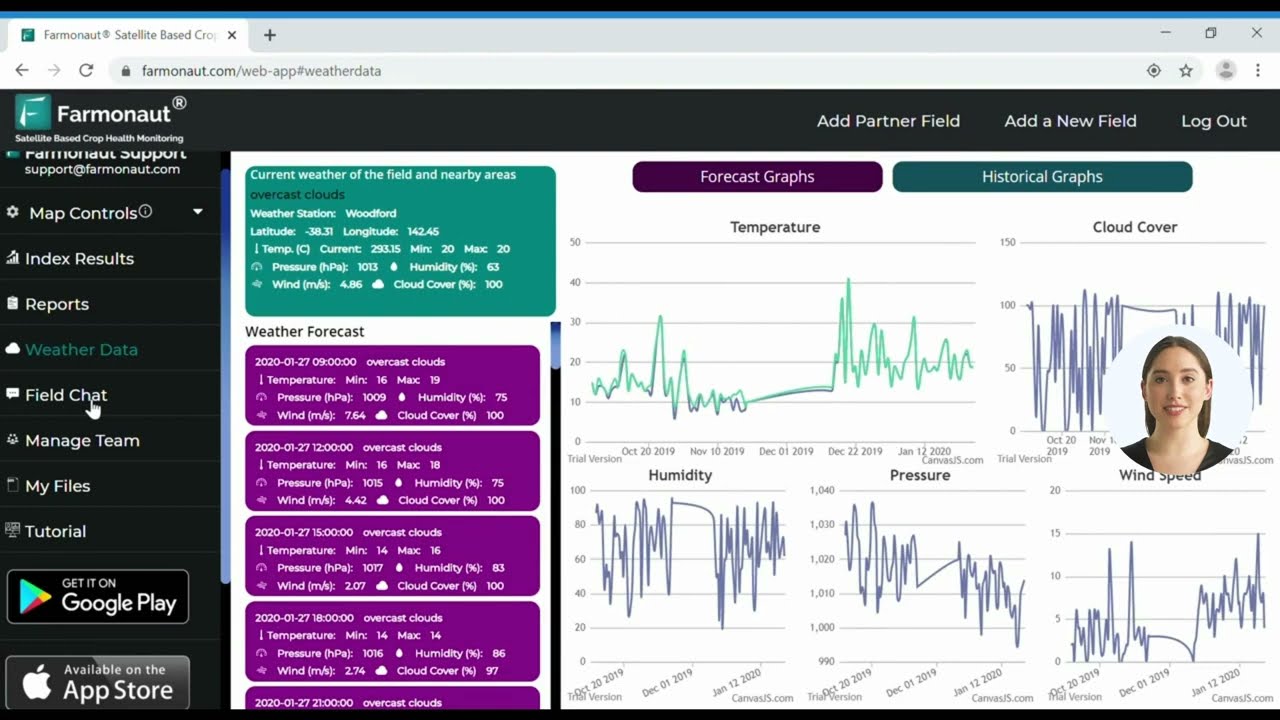
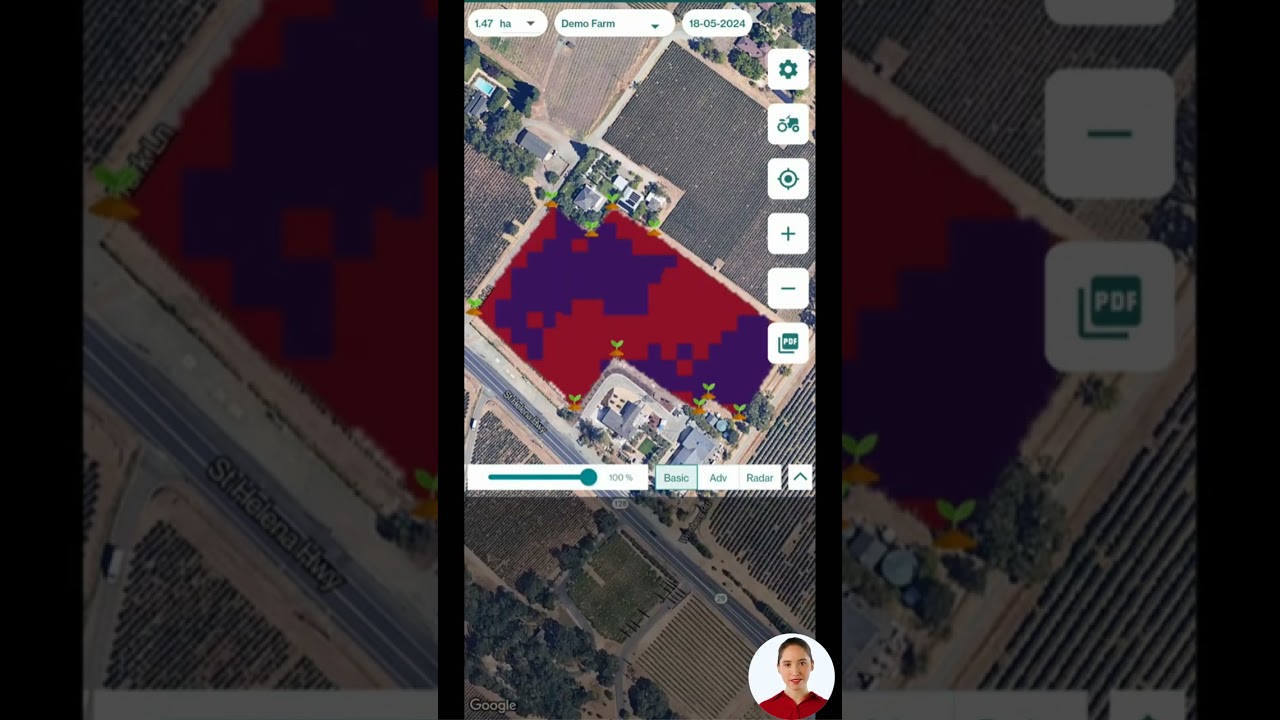
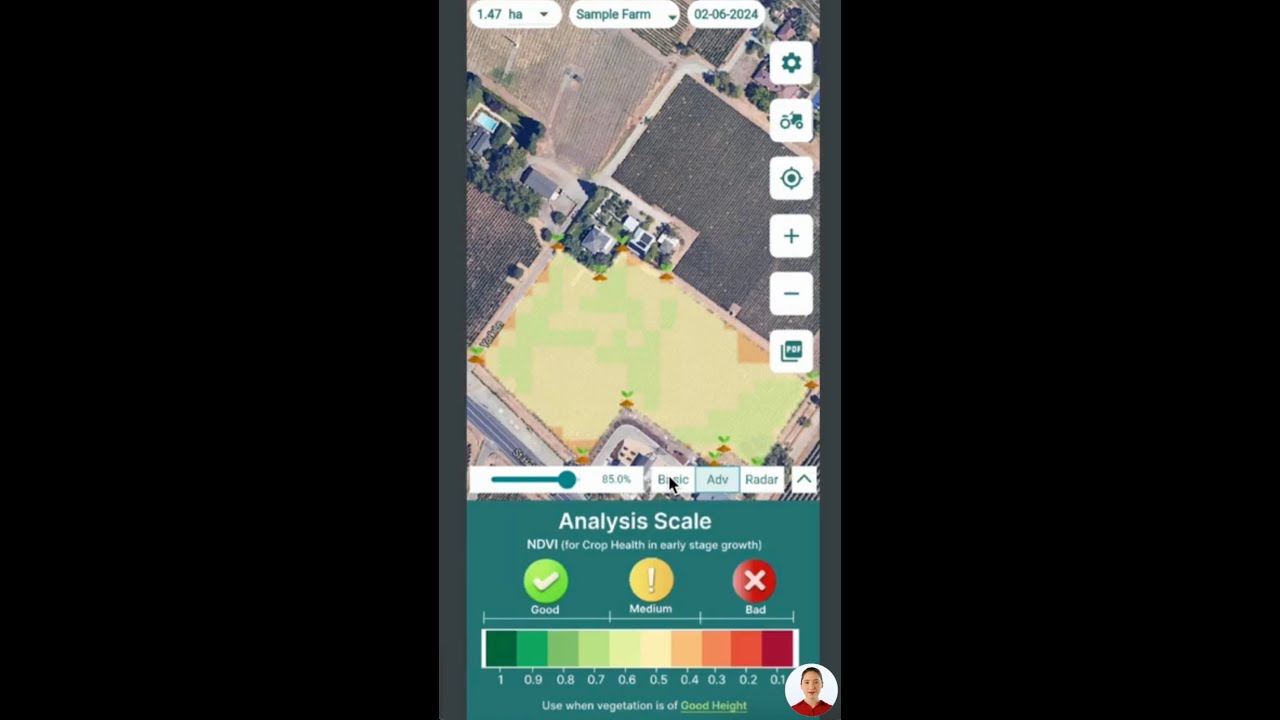












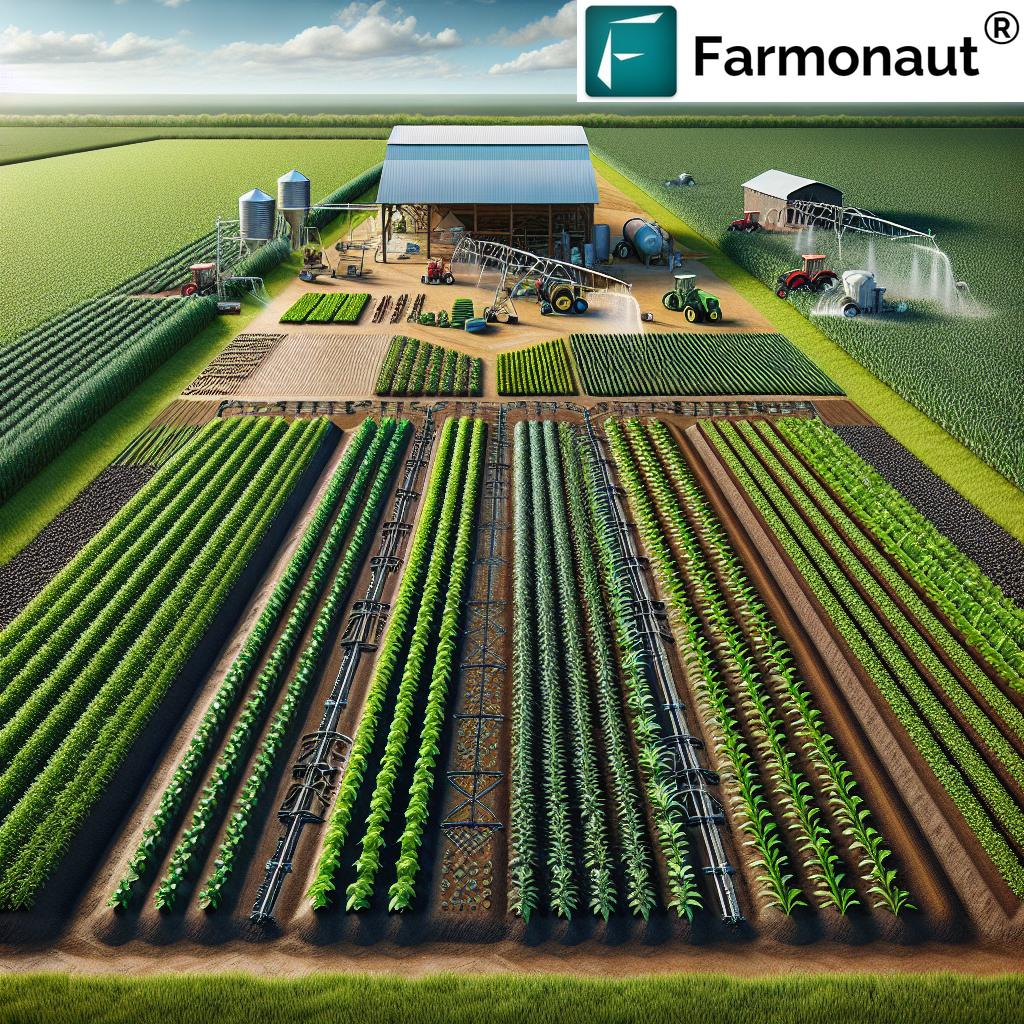

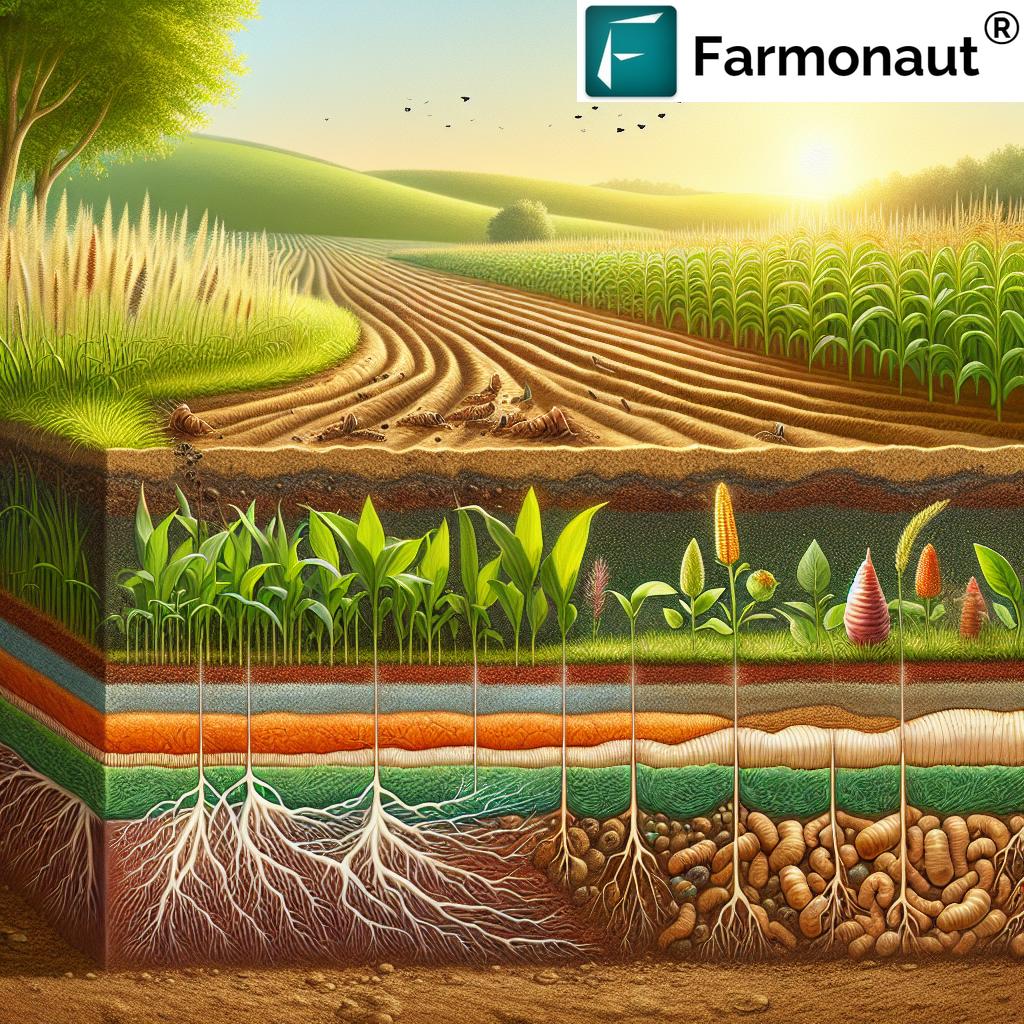

Fascinating read, It’s amazing to see how AI and tools like Farm Beats are reshaping the future of agriculture and education. I recently looked up a Tally institute near me to build my financial skills.